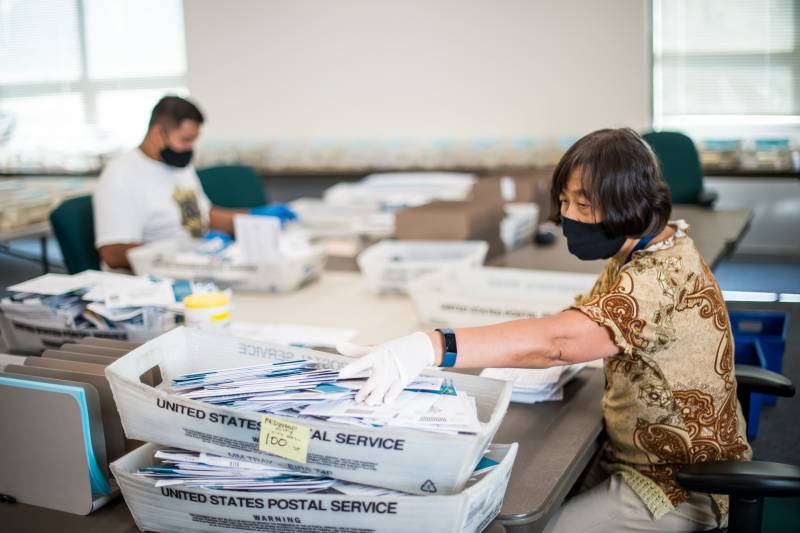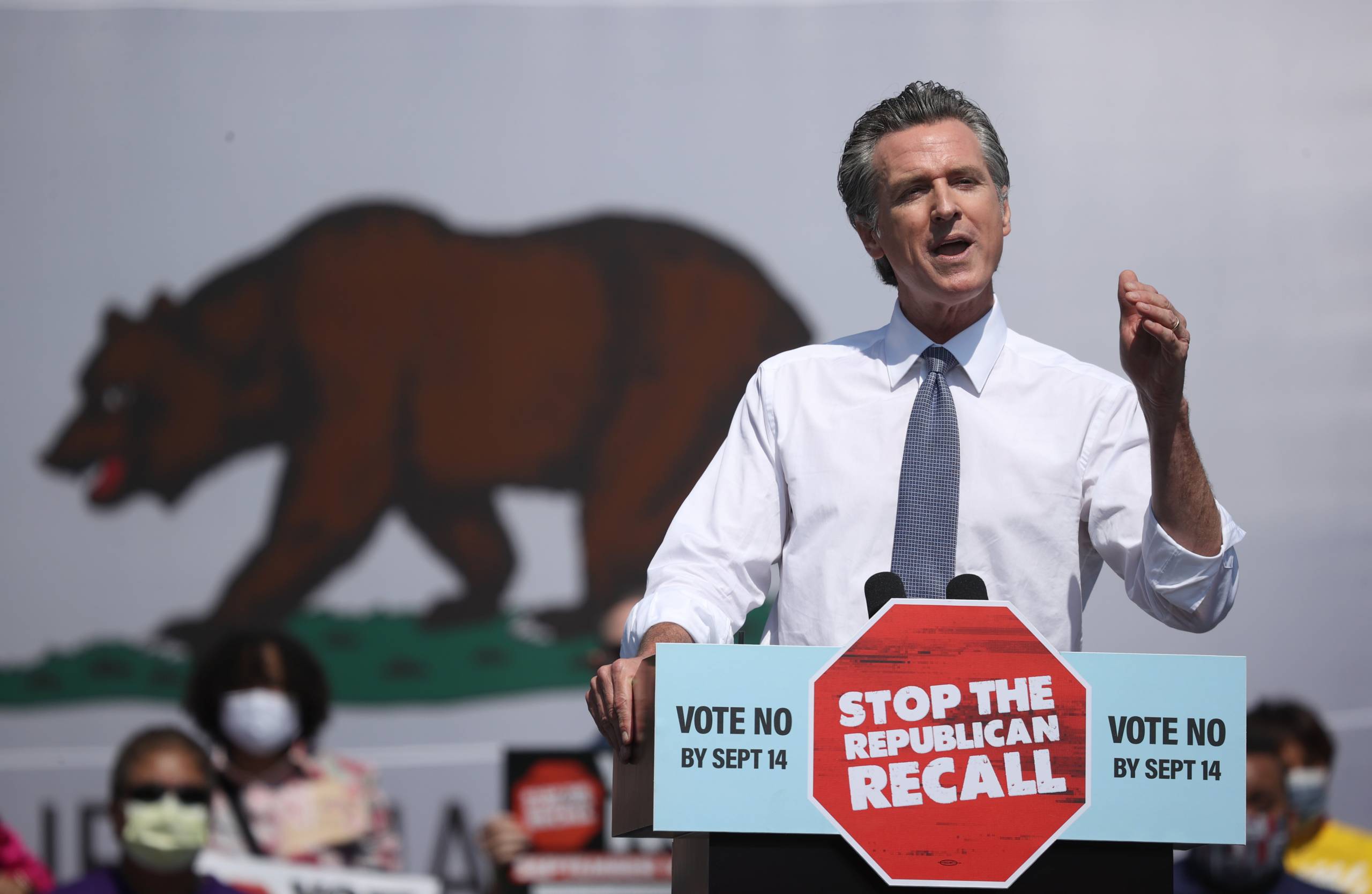On Tuesday, voting ends in California’s contentious and highly anticipated recall election in which voters will decide whether Gavin Newsom will be replaced as governor.
While many Californians will vote on Sept. 14 itself, a large number of voters will already have cast their ballots by mail-in voting or by taking advantage of early in-person voting around the state.
But what about the California recall election results? When might we get a definitive answer on whether Newsom will be recalled? And how do elections get called?
What does early voting mean for getting results on election night and beyond?
Election officials expect to report a large number of returns shortly after polls close at 8 p.m, especially in counties where many voters have already cast their ballots.
"The first returns will be the vote-by-mail ballots we've counted to date," said Lynda Roberts, registrar of voters in Marin County, where turnout is already above 50%. "We'll be updating throughout the night as we get polling place returns."
In the days after the election, officials will continue to count votes — mostly ballots dropped off at voting locations on Election Day, said Deva Marie Proto, the Sonoma County registrar of voters.
"We'll need a few days to do all of the signature checking and processing of those," she added.
In 2020, Republicans were much less likely than Democrats to vote early by mail, in part because then-President Donald Trump repeatedly claimed — without evidence — that voting by mail was unsafe and susceptible to fraud.
If that trend continues, the results in the recall election could swing back and forth on election night, depending on which types of votes are being reported: mail ballots or in-person votes.
Most California voters cast their ballots by mail, a trend that accelerated during the pandemic since many voters were reluctant to enter crowded polling places on Election Day. About 87% of California voters cast their ballots by mail in last year’s presidential election.
How long will the actual vote counting take?
The explosion of early voting may beef up the initial vote counts released in the Bay Area, but election officials say a few factors will dictate how long the entire vote count will take.
For one, ballots mailed on Election Day can still be counted, as long as they are postmarked by Sept. 14 and received by county elections officials by Sept. 21. If you're planning to return your mail-in ballot close to Election Day, it's probably wise to use a county drop box or submit your ballot at a voting location to avoid having your ballot miss the last U.S. Postal Service collection on Sept. 14. Find your nearest drop box or voting location.
And California's same-day voter registration (also known as conditional registration) rules allow voters to show up at a voting location and register on Election Day, while casting a provisional ballot that will be further checked by election workers.


